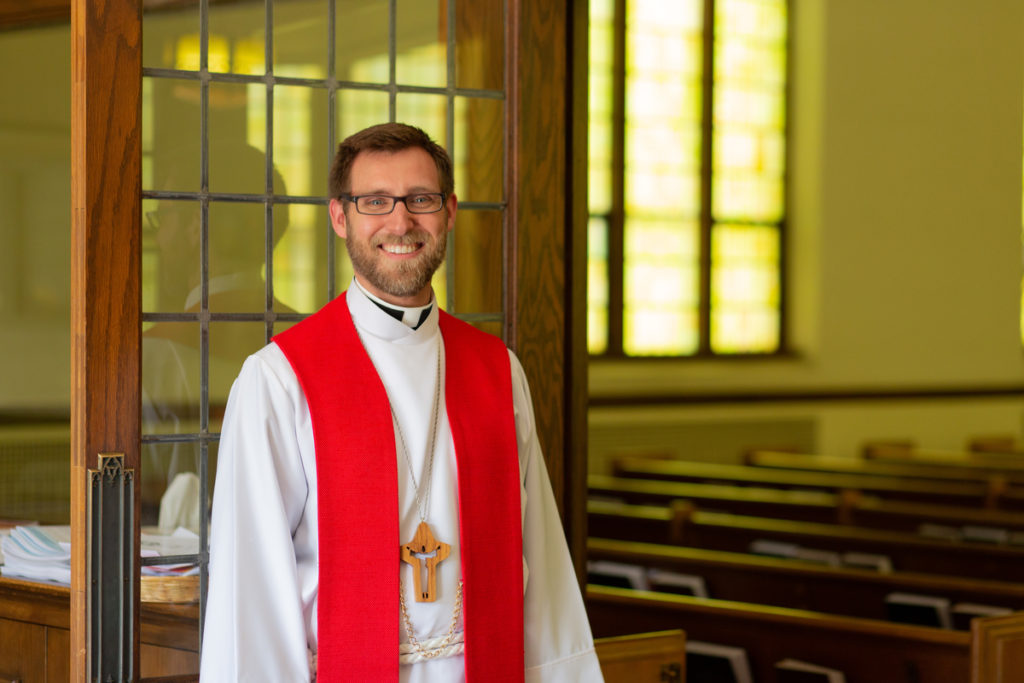Note from Executive Director Dennis D. Nelson:
Many thanks to a friend of Lutheran CORE for giving us a review of Eve Tushnet’s book, “Tenderness: A Gay Christian’s Guide to Unlearning Rejection and Experiencing God’s Extravagant Love.” The reviewer finds in this book a hope-giving guide for same-sex attracted persons who seek to live lives that are faithful to the Scriptures as well as find healing from their pain as they draw near to God. It is also a reminder to the followers of Jesus that we need to have the mind of Christ as we offer grace, encouragement, and support to people who are struggling with the issues in their lives as they seek to live lives that are faithful to God. Here is a link to our Resources page and here is the link to the post on our website that offers resources for same-sex attracted persons as well as their pastors, church leaders, friends, and family members.
Many Christian books have been written about LGBTQ+ concerns (homosexuality, transgenderism, etc.) from a traditionalist perspective. Rarely, if ever, are these books written by and for members of the LGBTQ+ community, addressing their needs and concerns.
Tenderness: A Gay Christian’s Guide to Unlearning Rejection and Experiencing God’s Extravagant Love meets the need for such a book. The author, Eve Tushnet, is a practicing Roman Catholic who holds to a traditional sexual ethic. Tushnet identifies as “gay”/”lesbian” (same-sex attracted); however, she lives a celibate life. Tenderness is addressed specifically to persons who identify as “gay” or “lesbian” and/or who experience same-sex attraction. Its aim is to help gays and lesbians to know God’s love for them, and to learn how to live faithful Christian lives, with love for God and obedience to the Church.
Tenderness begins by acknowledging the pain that gays and lesbians have experienced. Part I: Hard Times details the various ways in which gays and lesbians have been needlessly harmed, both by the church (i.e., through sermons about “how the gays are destroying America”) and by the world (i.e., through “homophobic jokes”). Tushnet affirms that holding to a traditional sexual ethic need not – and should not – result in inflicting these sorts of wounds. Tushnet also acknowledges the struggles of same-sex attracted persons who have tried and failed to eliminate their battle with same-sex attraction (i.e., “you’ve desperately prayed to become straight, night after night, often in tears”), then experienced the pain of being misunderstood and shamed for their persistent struggle with same-sex attraction.
Tushnet assures same-sex attracted persons that they aren’t alone, that their pain is not their fault, that there is hope for their healing, and – most importantly – that God loves them and cares for them. By acknowledging their pain and by giving them hope, Tushnet takes crucial steps towards helping same-sex attracted persons to heal. This healing, for many, is required for them to be able and willing to accept the Gospel of Jesus Christ with an open heart.
The rest of the book provides teaching and practical help to Christian gays and lesbians.
Part II: What If “Bad Things” Are…Good? addresses what gays and lesbians should do about not being able to have sex and/or to marry. Drawing on St. Augustine’s concept of sin being disordered love which is in need of being rightly ordered, Tushnet explains how to rightly order “same-sex love”. Tushnet gives the prospect of celibacy a positive outlook, challenging the notion that a celibate life is one that is condemned to loneliness, isolation, and deprivation.
Part III: The Church Suffering addresses the various kinds of suffering that Christian gays and lesbians endure: anger and sadness, abandonment and abuse, guilt and shame, doubts about the Christian faith, questioning the traditional sexual ethic. Tushnet, again, assures those who have suffered in these ways that they are not alone in their suffering. Then Tushnet guides them in the process of working through these challenging thoughts and feelings. In so doing, Tushnet aims to help them (re)discover the beauty of the Christian life, to commit to the traditional sexual ethic with integrity, and to develop firm faith in Jesus Christ.
Part IV: How to Know God’s Tenderness offers “specific practices or ways of thinking” which some gays and lesbians have found especially helpful. These are meant to develop knowledge of God, trust in God’s goodness, experience of God’s love, and closeness to God.
Tenderness provides an excellent resource for gays and lesbians who aspire to live faithfully, to heal from pain that has hurt their faith, and to draw near to God with faith. * A note about language: There is a dispute, among traditionalists, regarding whether or not Christians who experience same-sex attraction should identify as “gay” or “lesbian”. Tushnet is comfortable with using these terms, but acknowledges the fact that some Christians are not, and would prefer to use alternate terms such as “same-sex attracted”.




















Dennis,
I believe this book touches all the right issues not on the basis of some sociological, faux theological or political siren call, but upon what so many of us have experienced within our families, friendships and pastoral responsibilities. I’d be eager to read in the near future, what the woke-agenda-promoters have to say about the book. Therein, we may see the collective face of the real devils, as we try to live tenderly. Hopefully, you might be willing to share your findings along those lines, Dennis. Shalom.
Mike
Lutherans would probably be best served to be wary of Tushnet, a Roman Catholic, and others who write out of a similar voice. We can certainly appreciate that Tushnet and others are seeking to be faithful and celibate in their walk of faith; however, the fundamental idea of “disordered love” is not quite right. Lutherans confess that concupiscence, such as a the desire to have a same-sex relationship, to be sin. Tushnet does not. My understanding is that Tushnet and authors like her argue that rather the disordered desires need to be sublimated such that the desire simply needs to be redirected into virtuous pursuits. We argue that the desires need to be repented of, not celebrated.